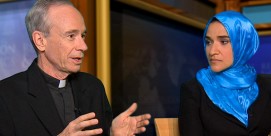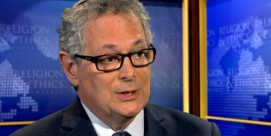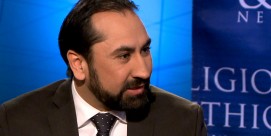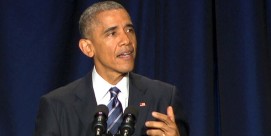Using Drones Outside Combat Zones
Armed drones launched the Sept. 30 air strike in Yemen that killed Anwar al-Awlaki, the American radical cleric who tried to recruit Muslims to help al-Qaeda’s terrorist efforts. US officials had considered him one of the most dangerous threats to American security. President Obama said al-Awlaki “repeatedly called on individuals in the United States and around the globe to kill innocent men, women, and children to advance a murderous agenda.” The mission, Obama added, showed that Al-Qaeda and its allies will find “no safe haven anywhere in the world.” But some ethicists are raising questions about whether the killing violated international law. University of Notre Dame international law professor Mary Ellen O’Connell released a statement calling the strike an illegal mission. “Derogation from the fundamental right to life is permissible only in battle zones or to save a human life immediately. The killing of Anwar al-Awlaki did not occur in these circumstances,” she said. In an interview with managing editor Kim Lawton earlier this year, O’Connell discussed her ethical concerns about the increased use of drones for targeted killings outside official combat zones. Lawton also talked with retired Lt. General David Deptula, who oversaw the US Air Force’s drone program from 2006 until 2010. He said remotely piloted aircraft allow the US a greater measure of accuracy in the new realities of the war against terror. Watch excerpts from both interviews.







